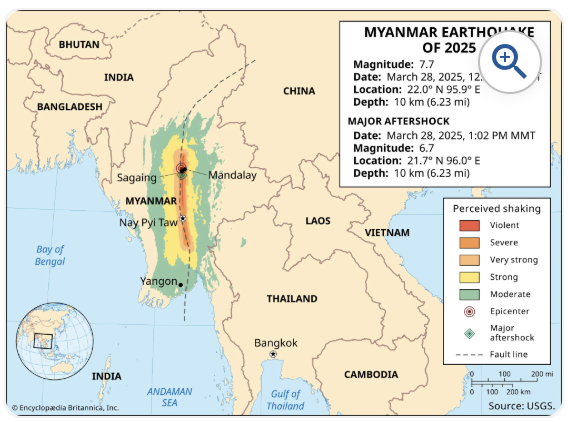Virtual Walk in the Arbo: Dr. Lisa Ievers
April 27, 2020
The Frelinghuysen Arboretum that lies adjacent to the MBS campus is much more than a scenic addition to the School’s campus. Many MBS faculty take walks in the arboretum during lunch and free periods, taking in its natural beauty and relaxing atmosphere before returning to their regular duties. Crimson Sun is continuing this series this year as we seek to learn more about MBS faculty and staff.
As school is closed indefinitely due to the ongoing pandemic, I took a “virtual walk” of sorts with MBS math teacher Dr. Lisa Ievers from the comfort of our own homes. Dr. Ievers joined the MBS faculty in 2018 after teaching at the college level for many years, including at Georgetown University in Washington, DC, and at Auburn University in Alabama. She currently teaches two sections of Integrated Math 1 and 2 and did an independent study last semester in Logic.
On distance learning from a teacher’s perspective…
“The first few weeks felt completely overwhelming. I just kept thinking about everything all at the same time. This was the fourth week, and it finally started feeling that it’s getting manageable.
I think for teachers it’s hard to plan the entire week by Sunday, that’s not a normal mindset for us. We want to see how things go. Maybe the students don’t understand it, so we have to slow down, or maybe they do and we can speed up. You have no sense of that on a Sunday. Math in particular is harder to transition to distance learning for that reason; in the humanities, if you’re stuck, you can keep reading. If you’re stuck in math, and your parents haven’t done calculus in twenty years, they don’t know how to help you. I’m glad we have the collaborative period to sign on. I’ve had students come for that and I feel it’s been pretty helpful.”
I certainly like not having to get up super early anymore. I used to get up at five and run before school, but I don’t do that now.
I’ve really enjoyed using Zoom, where I can use my laptop and my iPad and do the screen-share. They can see me writing [on my iPad] and I can see them as they ask a question. It’s the closest I can get to having personal contact with them at the whiteboard.
I’ve been really impressed with how quickly and easily the students have adapted. There’s relatively little whining; people just get on board and here we are. I don’t think we have a choice, that’s what it is.”
On the most valuable part of teaching math to teenage students…
“In particular at MBS, it’s the small class size. I really feel that I can give individual attention. Maybe not on a daily basis, but throughout the week I do feel like I’m touching base with each student in my class trying to help them. I find the collaborative period very beneficial when there’s a shy student who’s afraid to ask during class. I find that I can work with them one-on-one and they’re not embarrassed. When it’s collab, it’s just me and that student, so they’re not embarrassed when asking a question. That was one of the major attractions of this teaching job: the small class size, where I knew I could reach out to every student because I think the worst feeling as a student is to feel as if you’re invisible and nobody cares if you’re learning.”
On the main differences between teaching in high school and college and how she has adapted to them…
“I would say one of the main differences is student behavior in high school, and I was prepared for that; I knew that would be the deal. So in college, … if you’re a behavior problem, you tend to skip class and not come, so then I don’t have a behavior problem. In high school, you can’t do that.”
But on the other hand, I think one of the benefits of high school is that it’s not hard to get my students to say things and participate, whereas in college, especially if it’s an early morning class, students are just tired and they don’t want to say much; they just want to listen to you.
I see the positives and the negatives. The behavior management thing I knew was coming, and I appreciate how it’s lively. I taught some philosophy classes at the college level where it felt like I was pulling teeth a bit and they were quiet and that was hard.”
On her favorite hobbies and how she’s adapted them to the current situation…
“My favorite hobby is distance running. I’ve been distance running since I was twelve, and I started running marathons in 2009. My last one was 2017, so it’s been a few years since I’ve run a marathon, but I’ve been doing some half-marathons since I moved to Jersey. I did one in Central Park in December and I did one in Hacketstown in October.
I joined a running group when I moved here. That’s what I tend to do any time I move somewhere: I join a running group since it’s a natural source of friends outside of the workplace and people to connect with.
In distance learning, it’s been tricky since I like to run trails and I like to go to parks and all of the county parks are shut down. I try not to drive anywhere to run, so I had to get creative with different routes. I’ve discovered some different routes from my own place, so that’s been interesting. I definitely miss running with people though. I would say that’s the biggest thing. I’m ok running solo, but not every single time, so that’s been hard. It’s good to get away from the computer and get out, I still do it now. I walk my dog every morning; she gets a longer walk now, because we have more time in the morning.”
On how she first began taking walks in the arbo…
“The day I interviewed actually. Dr. Ja [Dr. Miklos Jalics, Math Department Chair] took me and a third person I can’t remember, maybe Dr. Bartholomew. I remember walking and the funny part was that I had dress shoes on. … Dr. Ja explained that this was something we do to break up the day and get out and get some fresh air and talk to each other. So that was something before I even got the job, I was out in the Arbo.
Dr. Ja jokes that’s why I took the job. … It is a really nice thing. Even just ten or fifteen minutes if we have a mutual free period, Dr. B, Dr. Ja, and we kind of form a walking trio out in the Arbo. We would try a couple times a week when we’re on campus. Now, we do ‘virtual walks’ even though we’re in front of the computer, so we still connect.”
On the differences in teaching the same course to middle schoolers and freshmen (Integrated Math 1)…
“That’s a great question. I call them ‘squirrelly’ and they know it. They’re eager to move around and there’s a lot of tangents, many more than even in 9th grade. They’re a great group though. I laugh a lot with them; it’s a fun class.”
One thing the MBS community doesn’t know about her…
“I will say, even though I’m a teacher, and that means I’m in front of the classroom the whole time, I don’t like being in front of a crowd or the center of attention. … When I first started teaching, I didn’t know if I could survive because I got so nervous. I couldn’t eat dinner the night before my first class I had to teach because I was so nervous and I didn’t like everyone looking at me.
But then I took it as a personal challenge. I realized it was hard for me. I’m not afraid of it, but I don’t love it. Some teachers love being performers. I took it on as I love to teach, so I’m going to have to get used to this aspect of the job, I’m going to have to get used to being in the front of the room.
At MBS what I like is I have the iPad and the Apple TVs and I can move around and it doesn’t have to be focused on me the entire time, because I want to show them stuff. So, I think it’s easier for me to handle my phobia that way at this school because I don’t have to be in the front of the room. At previous schools, it’s been less tech-heavy and I’ve been the person at the front of the room. So, I love teaching, but I don’t love being the center of attention at the front of the room.”
On her favorite teaching moment…
“I don’t know if it’s a moment, but I’ve had it multiple times. Whether it’s philosophy or it’s math, because I’ve taught both, it’s the student who comes in and thinks this is not for them, they’re very jaded, they come in saying, ‘I have to take this class,’ they don’t want to be here and it’s very clear, and some of them come around and say, “Oh wait, I can do philosophy. I didn’t really know what it was and now I’m finding it kind of interesting now that I know what it is.’ And the same story with math. On the first day, I do an activity where I ask them to raise their hands if they don’t consider themselves to be a ‘math person.’ At least half the class raises their hands. So I like it when the students who write themselves off let themselves enjoy math, and that’s not all of them, some of them stay written off the whole year, and some of them turn it around a little. I don’t think that’s me, necessarily, but it’s just me showing them that they can do it. They’ve written themselves off from day one and they shouldn’t have. So I don’t know if it’s a particular moment, but I’ve had that multiple times where I like the student who comes in kind of jaded and I want to turn them around on it because they never gave it a shot, they never gave it a chance.”





